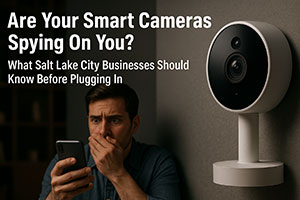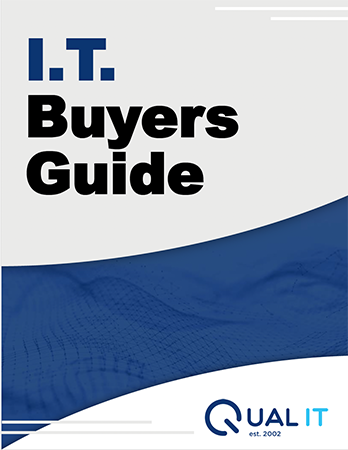 In 2020, a young girl heard a stranger's voice through a Ring camera in her bedroom. A hacker had breached the device using an old, compromised password. It wasn’t a high-level, technical attack—just a common vulnerability.
In 2020, a young girl heard a stranger's voice through a Ring camera in her bedroom. A hacker had breached the device using an old, compromised password. It wasn’t a high-level, technical attack—just a common vulnerability.
Now apply that to a medical setting. Imagine a bad actor tapping into your clinic’s front-desk camera, or worse, a staff break room or hallway monitor. With many Salt Lake City practices using smart cameras for added security, this scenario isn't far-fetched. The very tools meant to protect your facility could become the entry point for a HIPAA violation.
Smart Security, Real Risks: What Healthcare Practices Overlook
Smart cameras are now standard in many clinics—monitoring check-in desks, medication storage areas, even back-office access. They offer convenience and a sense of control. But without the right IT support for your Salt Lake City practice, they can become digital liabilities.
Not all devices offer the same level of security. Inexpensive models may skip encryption, neglect firmware updates, or lack two-factor authentication. Even well-known brands can be risky when not properly configured.
Common vulnerabilities include:
- Default usernames and passwords left unchanged
- Outdated firmware that goes unpatched
- Devices connected to unsecured or shared Wi-Fi networks
Worse, many clinics unknowingly connect smart cameras to the same network as their EMR systems or billing software—creating a clear path from a $50 device to highly sensitive patient data.
Before You Plug In: What Salt Lake City Clinics Must Prioritize
Whether you're already using smart cameras or planning to install them, here are four things your medical practice must prioritize:
- Choose HIPAA-conscious vendors.
Look for smart camera brands known for strong encryption, regular updates, and healthcare use cases. - Require Two-Factor Authentication (2FA).
If the device doesn’t offer it, it doesn’t belong in your clinic. - Segment your network.
Keep smart devices on a separate VLAN from your core systems (EMR, practice management, billing, etc.). - Configure your router securely.
Outdated router settings are an open door for hackers. Your IT provider should ensure WPA3 encryption, firewall settings, and proper port restrictions are in place.
Remember, "plug and play" doesn’t apply in healthcare IT. Every connected device must be considered a potential attack surface.
It’s Not Just Cameras
Doorbell monitors, smart locks, thermostats, and even virtual assistant devices can all pose risks to your Salt Lake City medical office. Anything that connects to your network must be accounted for in your IT security strategy.
For medical practices, the cost of a breach is more than financial. It’s reputational. It’s regulatory. It’s deeply personal.
Protect Your Peace of Mind
Smart devices offer modern security. But without healthcare-grade IT support, they can quietly undermine everything you’re working to protect.
At Qual IT, we specialize in managed IT services for Salt Lake City medical practices—from HIPAA-compliant configurations to ongoing device monitoring. Before you plug anything in, make sure your foundation is secure.
Click here to book your free network assessment.
Let’s lock the digital doors to your practice—before someone else walks in.



